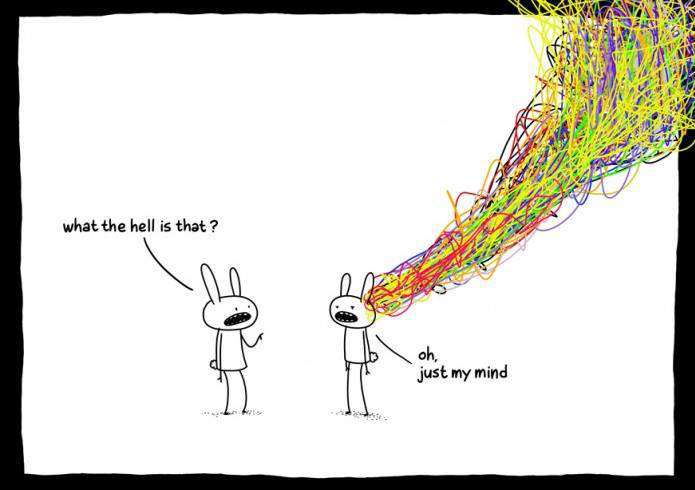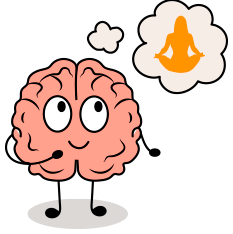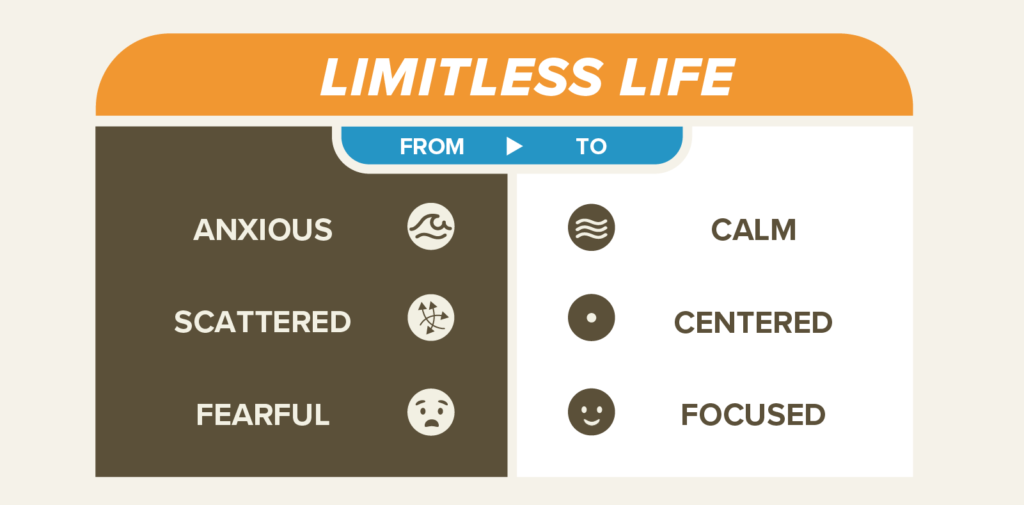How do stress and anxiety cause illness in the body? Stress and anxiety can be chronic and crippling, but we can learn how to handle stress more healthier. Many people live with stress and tension from the time they wake up until they go to bed, and they are lucky if they fall asleep quickly. Stress has become woven into our personalities. We have become victims of it because we feel it’s normal to have high stress; everyone suffers from it, don’t they? We also think there is nothing we can do about it, so we keep dealing with it the best we can.

These are Some of the Overwhelmed States of Stress and Anxiety we are Always in.
- We are in a state of worry about tomorrow, and it’s not even here yet.
- Our worried mind remembers every experience we have had, good and bad.
- We constantly worry if the same negative experience will happen again in a similar situation.
- Our bodies also hold what is called emotional memory. Emotional memory is in the very cells of our bodies. Past traumas and emotional pain are stored in the body and cause illness when not dealt with healthily and released. This is referred to as stuck negative energy in the body.
- We stay stuck in victim mode, and as a result, we remain stuck in life. We become controlled by subconscious blocks, such as fear blocks. As a result, we are constantly looking back at the unjust we encountered in the past.
- Our mind is constantly stressed about the future or upset about yesterday, last week, or even ten years ago.
- We worry about work, family, money matters, and so on.
We need to learn to release stress and anxiety healthily. Once we do this, life gets better and better! We build resilience when unwanted situations show up in our lives, and they always do. Meditation helps us build resilience and we bounce back from upsetting life situations with more ease.
Other cultures have practiced meditation for thousands of years for physical, mental, emotional, and energy well-being.
Research Studies: The Effects Stress Has On The Body
Medical research studies have repeatedly shown that 90% of all illnesses and diseases are chronic stress-related. Our bodies are flooded with stress hormones (cortisol) and (adrenalin) when the stress response is triggered. Inflammatory molecules are over-released causing inflammation to fill the body inflicting great damage to the body’s cells and organs. The nervous system is in a constant state of upheaval. Keeping us in a constant state of fight or flight mode. The body is in Dis-Ease, = Disease.
Society has become too comfortable with stress and anxiety; therefore, thinking and feeling that it is the NORM! It is not! Individuals have evolved in such a state of stress and anxiety they don’t realize how over-stressed they are. Nor the effects it has on their mind and body.
Other cultures have known for thousands of years that when the mind and body are in dis-ease, we become ill. Being in a state of constant stress and anxiety in our mind causes an imbalance within our body, mind, and energy. As a result, below are some of the illnesses and diseases caused by chronic stress, and what we can do to ease stress in our lives.
Illness Caused By Stress
Stress and high blood sugar levels
This means more glucose is available in your bloodstream, and you have higher blood sugar levels.
Consistently high blood sugar levels can wreak havoc on your health, with symptoms including:
- Increased thirst and urination
- Blurred vision
- Light-headedness
- Flushed skin
- Restlessness
This means more glucose is available in your bloodstream, and you have higher blood sugar levels. Consistently high blood sugar levels can wreak havoc on your health, with symptoms including increased thirst and urination, blurred vision, light-headedness, flushed skin, and restlessness.
Stress-induced anxiety
Here’s an experience many people will recognize: palpitations, chest pressure, insomnia, dry mouth, panic attacks, and anxiety. There are things you can do to get yourself through these moments:
- Practice mindfulness techniques.
- Try meditating or deep-breathing exercises.
- Get out and exercise.
- Get enough quality sleep.
- Surround yourself with people who love you.
When that’s not enough, it’s important to see your healthcare provider to discuss therapy and medication options.
Stress-induced inflammation
Stress can lead to increased inflammation levels. Experts know that inflammatory markers in the blood increase with stress, including interleukin-6, C-reactive protein, and fibrinogen. This can be helpful if fighting off an infection or healing an injury. But when it goes on for a long time, it can lead to chronic inflammation and other health issues, including heart disease or diabetes. It can also cause symptoms in the short term, such as hives, pain, or fatigue.
Stress-induced pain (hyperalgesia)
Stress and anxiety change the way you feel pain. The nature, time, and intensity of the stress all play a role. Stress, fear, and anxiety all have strong, complex influences on pain.
Chronic stress and heart disease
While a connection has yet to be scientifically proven, initial studies suggest that chronic stress and an unhealthy level of stress hormones may contribute to heart disease.
Inflammation of the heart muscle
Persistent stress may contribute to inflammation in the circulatory system, particularly in coronary arteries. Inflammation in the arteries is a key culprit behind the build-up and rupture of plaque in artery walls and subsequent heart attacks.
Stress and irritable bowel syndrome (IBS)
So, what’s the link? Well, stress has been linked to increased movement and sensitivity in the intestines. As the pain pathways in our central nervous systems are linked to our gut processes, external stressors can trigger unpleasant bowel symptoms. There is also evidence to show that stress and mood disorders can alter our gut microbiome and affect our immune system, both of which are important for proper gut function.
Insomnia
Insomnia is difficulty with falling asleep and staying asleep or with overall sleep quality. This occurs despite adequate time allotted for sleep and a comfortable place to sleep. Persistent stressors, such as problems at work, family difficulties, the death of a loved one, and major illness can contribute to chronic insomnia.
Short-term stressors can also bring short-term insomnia symptoms. These symptoms would usually be resolved once the stressful situation ends. However, some people may fall into a vicious cycle of sleep loss and daytime anxiety about sleep that snowballs into chronic insomnia.
Broken heart syndrome (Takotsubo syndrome)
Severe stress can lead to sudden, temporary weakening and dysfunction of the left ventricle, the large squeezing chamber of the heart. Researchers think this type of heart failure is related to increased levels of stress hormones, like epinephrine and norepinephrine. Most people will recover from broken heart syndrome (Takotsubo syndrome). But it can also lead to serious complications, including sudden death.
How to Deal with Stress and Anxiety: Meditation to Achieve Calm Inner Peace

Achieving inner peace and happiness in life can be difficult without the right tools and guidance. One of the most effective ways to achieve mental clarity while improving physical health at the same time is meditation. It helps us live happier and more fulfilled lives by reducing stress and anxiety and increasing self-awareness. The goal is for you to find your perfect style so you can master your mind. As a result, you get out of the repeated patterns of living with high stress.
Intermediate Meditation Course
The Master Your Mind is an intermediate-level online course that will take you through ten meditation techniques. Guiding the meditator to experiment with several styles of meditation allows them to choose their ideal technique. Essential practices include body, mind, breathing, sound, sight, feeling, and consciousness. We are changing people’s lives with meditation.
Learn how to deal with stress and anxiety. Meditation research studies prove over and over again how meditation works to improve physical, emotional, and mental health.

Relieve your stress and anxiety and live a limitless life as you become calm, centered, and focused. So go ahead and join now; your new life is waiting!
Go Ahead and Click the Button Below!


Disclosure: Bear in mind that the button link above in this post is an affiliate link and if you make a purchase I will earn a commission. Keep in mind that I link this company and its products because of their quality and the positive impact on people’s lives, not because of the commission I receive from your purchases.
More Resources:
How Does Stress Affect The Body https://1111newme.com/2021/03/04/how-does-stress-affect-he-body/


One reply on “How Does Stress and Anxiety Cause Illness in the Body?”
Thank you for addressing such an important topic in this post Your words are powerful and have the potential to make a real difference in the world